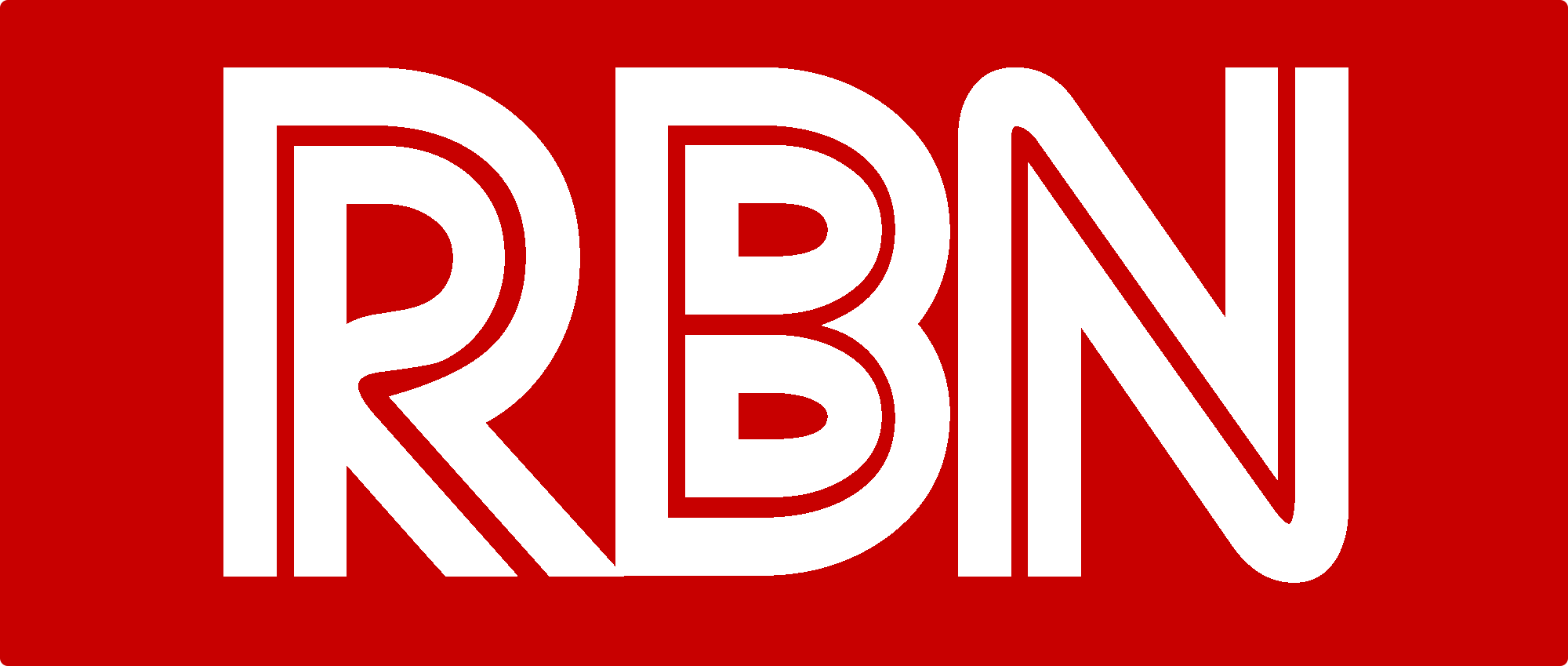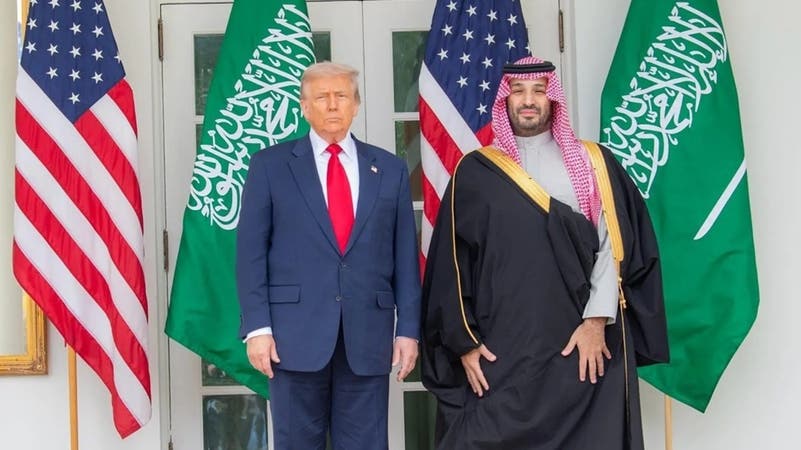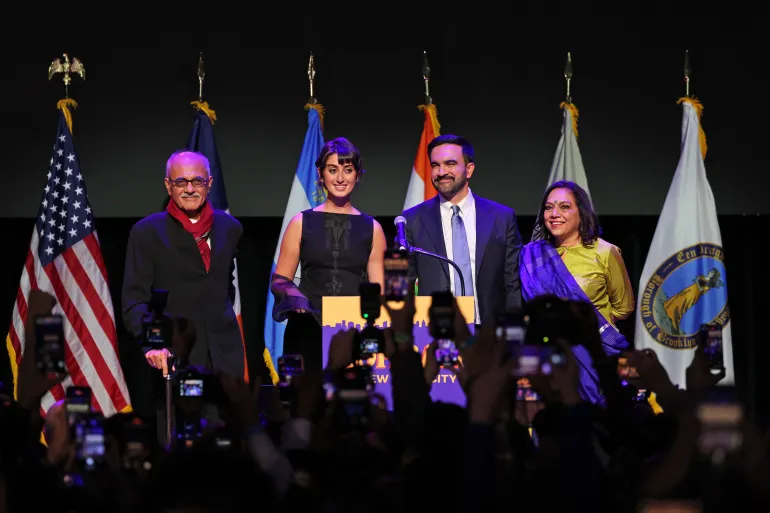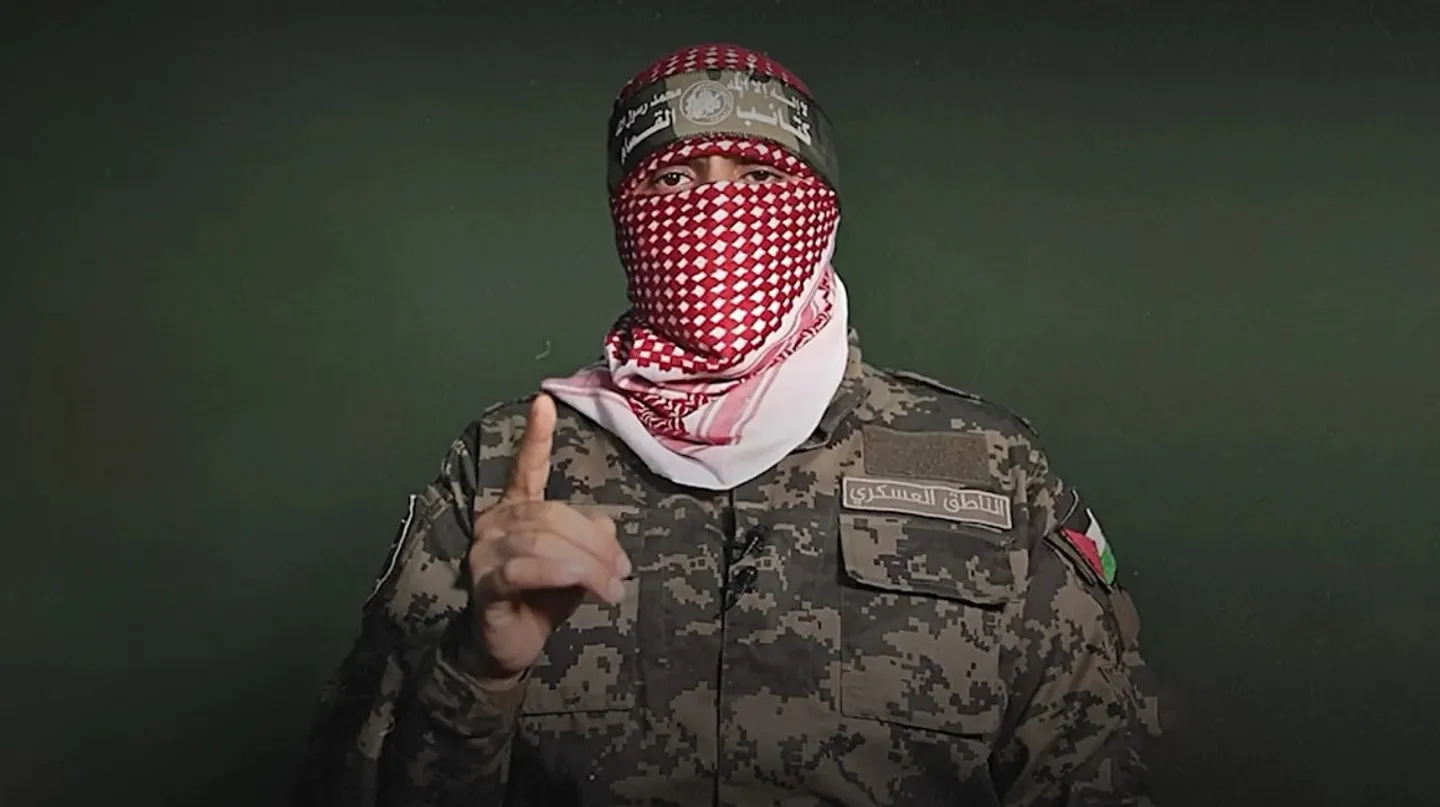Khalifa bin Zayed.. A journey full of giving and achievements
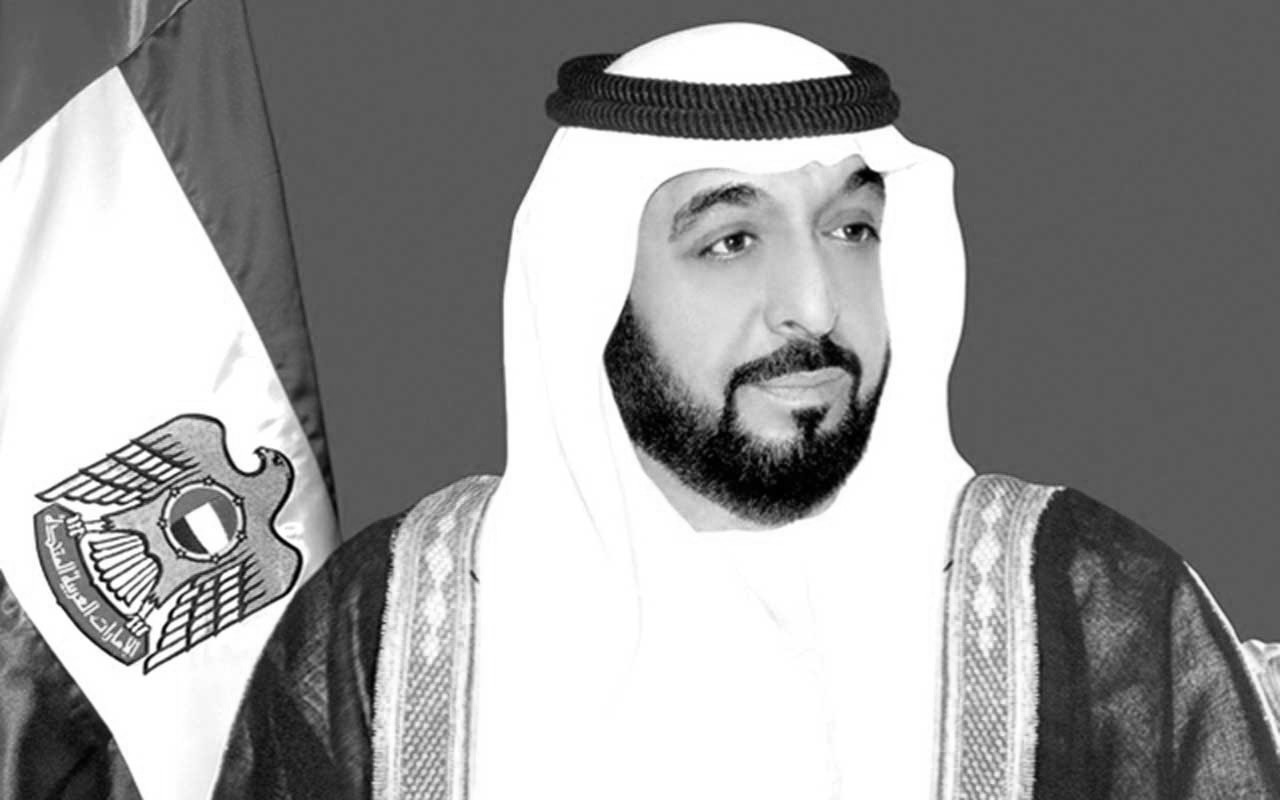
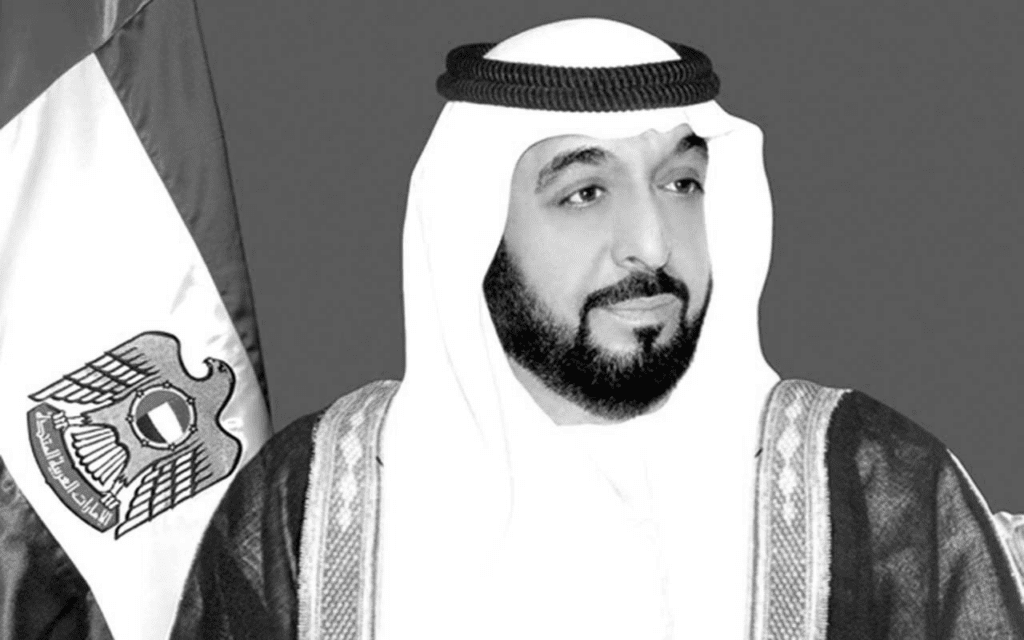
His Highness Sheikh Khalifa bin Zayed Al Nahyan was born in 1948 in Al Muwaiji Castle in the city of Al Ain. He is the eldest son of the late Sheikh Zayed bin Sultan Al Nahyan. His mother is Sheikha Hessa bint Mohammed bin Khalifa bin Zayed Al Nahyan.
Milestones in the life of the head of state
His Highness was appointed as the representative of the ruler of Abu Dhabi in the eastern region, and head of its legal system in August 1966.
– His Highness was appointed Crown Prince of the Emirate of Abu Dhabi on February 1, 1969.
His Highness assumed the presidency of the first local council of ministers in the Emirate of Abu Dhabi on July 1, 1971, in addition to the defense and finance portfolios in this council.
– He became Deputy Prime Minister of the Federal Council of Ministers on January 20, 1974.
– He was appointed Deputy Supreme Commander of the UAE Armed Forces in 1976.
– He became President of the United Arab Emirates and Ruler of Abu Dhabi on November 3, 2004.
The beginning of the rule of Sheikh Khalifa bin Zayed – may God rest his soul –
When the late Sheikh Zayed Al Nahyan moved to Abu Dhabi to become the ruler of the emirate in August 1966, he appointed his son Sheikh Khalifa – who was 18 years old at the time – as his representative in the Eastern Province and head of the courts. This delegation was considered evidence of the confidence of the forgiven.
Sheikh Khalifa followed in his father’s footsteps, and continued to implement major development projects in the Eastern Province, especially those aimed at improving agriculture. His remarkable success in Al Ain was the beginning of a long career in the service of the people, and the beginning of assuming his leadership role with ease, and skill recorded by his major achievements.
During the following years, Sheikh Khalifa held a number of key positions, and became the chief executive officer of the government of his father, the late Sheikh Zayed bin Sultan, and assumed the tasks of supervising the implementation of all major projects.
On February 1, 1969, Sheikh Khalifa was nominated as Crown Prince of the Emirate of Abu Dhabi. The next day, he assumed the duties of the Defense Department in the emirate.
Sheikh Khalifa established the Department of Defense in Abu Dhabi, which later became the nucleus of the UAE Armed Forces.
On July 1, 1971, as part of the restructuring of the Abu Dhabi government, His Highness was appointed as the Ruler of Abu Dhabi and as the local Minister of Defense and Finance in the emirate.
On December 23, 1973, Sheikh Khalifa assumed the position of Deputy Prime Minister in the second Cabinet.
Shortly thereafter, on January 20, 1974, His Highness assumed the duties of the presidency of the Abu Dhabi Executive Council, which replaced the local government in the emirate.
Sheikh Khalifa oversaw the Executive Council in achieving comprehensive development programs in the Emirate of Abu Dhabi, including housing construction, the water supply system and roads, and public infrastructure that led to the modernization of Abu Dhabi city.
The Abu Dhabi Investment Authority (website in English only) was established in 1976 on the orders of Sheikh Khalifa bin Zayed, with the aim of managing financial investments in the emirate, to ensure a stable source of income for future generations.
His Highness Sheikh Khalifa bin Zayed Al Nahyan was elected President of the State on November 3, 2004, following the death of his father, the late Sheikh Zayed bin Sultan Al Nahyan, on November 2, 2004.
Other areas of power and development
Sheikh Khalifa was widely involved in other areas of development in the country. In May 1976, he was appointed Deputy Supreme Commander of the Armed Forces of the United Arab Emirates, following the historic decision of the Federal Supreme Council to merge the armed forces under one command and one flag.
His Highness focused most of his attention on making the military institution a large multidisciplinary institute, in which trained human cadres are prepared. He established several colleges and ordered the purchase of the latest military equipment and facilities.
In addition, Sheikh Khalifa established the Abu Dhabi Department of Social Services and Commercial Buildings known as the (Khalifa Committee) in 1981. The department provides construction loans to citizens.
Another important position that His Highness occupied in the late eighties of the last century was the leadership of the “Supreme Petroleum Council (whose powers were transferred to the Supreme Council for Financial and Economic Affairs). The process of developing petrochemical and industrial facilities in the Emirates was part of a long-term program aimed at diversifying the country’s economy as One of His Highness’s priorities.
In 1991, His Highness established the Loan Authority to provide real estate to the citizens of the emirate, for both housing and investment purposes.
Until 2006, he served as Chairman of the Board of Directors of the Abu Dhabi Fund for Development, which oversees the foreign development aid program for the UAE.
Sheikh Khalifa was the honorary president of the Environment Agency – Abu Dhabi.
Sheikh Khalifa, Ruler of the Emirate of Abu Dhabi, and President of the United Arab Emirates
His Highness Sheikh Khalifa bin Zayed Al Nahyan was elected President of the State on November 3, 2004. He also assumed his duties as ruler of the Emirate of Abu Dhabi following the death of his father, the late Sheikh Zayed bin Sultan Al Nahyan, who was elected the country’s first president on December 2, 1971, until the date of his death on December 2. November 2004.
After his election as President of the UAE, Sheikh Khalifa launched his first strategic plan for the UAE government to achieve balanced and sustainable development and ensure prosperity for citizens.
One of his main goals as President of the United Arab Emirates was to follow the path of his father, who believed in the pioneering role of the UAE as a beacon guiding its people towards a prosperous future in which security and stability prevail.
Sheikh Khalifa has overseen the development of the oil and gas sectors, and manufacturing industries that have contributed with great success to the economic diversification of the country.
His Highness also made extensive tours throughout the United Arab Emirates, to study the needs of the northern emirates, and ordered the construction of a number of housing projects, roads, education projects, and social services.
In addition, His Highness launched an initiative to develop the legislative authority, by amending the mechanism for selecting members of the Federal National Council, in a way that combines election and appointment, allowing the selection of half of the members of the Federal National Council through direct elections from the people of the UAE.
Sports activities have a great deal of interest from His Highness, who is keen to follow them on an ongoing basis, especially football. He has made significant financial contributions to support and honor local sports teams and clubs that achieve local, regional and international championships.
Re-election of Sheikh Khalifa as President of the United Arab Emirates
In 2009, Sheikh Khalifa bin Zayed was re-elected as President of the UAE, and His Highness pledged to continue implementing the ambitious strategies of political, administrative, economic, social and cultural development that he had begun. His wise leadership and concern for the federal state’s interests were credited with overcoming financial and regional crises.
Foreign Policy
Sheikh Khalifa stressed the need to carry out political developments, not only in terms of governance, but also include societal reforms that raise the status of the homeland and the citizen in all fields, and enhance national belonging.
In addition, Sheikh Khalifa was also keen to pursue an active foreign policy that supports the UAE’s position as a prominent and effective member, regionally and globally.
Sheikh Khalifa is a staunch supporter of the Cooperation Council for the Arab States of the Gulf. He believes that the success and achievements of this council reflect the depth of cohesion between its leaders.
Sheikh Khalifa also demonstrated his commitment to strengthening international relations by receiving leaders from Asia, Europe, and other Arab countries. His Highness also visited Central Asian countries, to consolidate his relations with them after the dissolution of the Soviet Union.
His Highness Sheikh Khalifa has pursued relief and development policies that support countries and peoples in need. In addition to government aid to the UAE, the Khalifa Bin Zayed Al Nahyan Foundation for Humanitarian Works is considered the third largest donor of foreign aid in the country, as its various aids have reached more than 70 countries around the world.
With his benevolent hand, he responded to many emergency situations and humanitarian crises to meet the call of the affected, afflicted and displaced wherever they are, whether in the east or west of the earth, such as providing relief aid after the tsunami disaster in the Indian Ocean in 2004, and the earthquake in 2005 that destroyed a large part of northern Pakistan, and neighboring regions in India.
Sheikh Khalifa Initiatives
Sheikh Khalifa launched many initiatives and decisions aimed at improving the quality of life for the country and the citizen, and achieving the country’s highest priorities and sustainable development goals. Notable initiatives include:
Sheikh Khalifa Excellence Award (SKEA)
The Sheikh Khalifa Excellence Award, which was launched by the Abu Dhabi Chamber of Commerce and Industry in 1999 as a roadmap and a methodology for continuous improvement with the aim of enhancing the competitiveness of the business sector in the United Arab Emirates.
Khalifa Bin Zayed Al Nahyan Foundation for Humanitarian Works
The Khalifa Bin Zayed Al Nahyan Foundation for Humanitarian Works was established in 2007 and its vision is to: Pioneering initiatives to serve humanity – and its strategy is focused in the areas of health and education locally, regionally and globally.
Khalifa Educational Award
The Khalifa Award for Education began in 2007 with the aim of supporting education, the educational field, motivating distinguished students, and innovative educational practices. The initiative aims to highlight educators and successful scientific practices locally, regionally and Arably.
Creation of a Bad Debt Remediation Fund
Sheikh Khalifa ordered the establishment of the Troubled Debt Management Fund on December 2, 2011 on the occasion of the 40th National Day of the United Arab Emirates. And set the fund an initial capital of 10 billion dirhams to study and deal with non-performing loans of citizens.
In 2014, the number of beneficiaries of the exemption of banks and the fund amounted to 3,482 citizens, and the value of the forfeited amounts amounted to 1.5 billion dirhams.
The beneficiaries of the fund’s exemption fall under the category of those obligated to pay, in addition to cases of social security, health disability, people with special needs, and a number of other humanitarian cases.
The initiative to replace old housing before 1990
On December 2, 2012, His Highness Sheikh Khalifa, the President of the State directed to follow up the speedy implementation of the replacement of old homes for all citizens in the emirates of Sharjah, Ras Al Khaimah, Ajman, Umm Al Quwain and Fujairah, which were built before 1990, in order to ensure that citizens obtain their new homes and benefit from them. out as soon as possible. The number of housing units that were counted reached 12,500, at an estimated cost of 10 billion dirhams.
In April 2015, the President’s Initiatives Committee approved a list for the reform and replacement of homes for 504 citizens. These projects included the maintenance of 105 homes at an estimated cost of 40.1 million, and the urgent replacement of 75 homes at an estimated cost of 63.9 million dirhams.
Initiatives of the President of the State for Citizens – Ministry of Presidential Affairs
Absher initiative
In 2012, His Highness Sheikh Khalifa launched the “Absher Initiative” to enhance the participation of national cadres in the labor market, qualify them with the necessary training, and encourage citizens to join the private sector.
Science, technology and innovation
في نوفمبر 2015، اعتمد صاحب السمو الشيخ خليفة السياسة العليا لدولة الإمارات في مجال العلوم والتكنولوجيا والابتكار، بميزانية تزيد على 300 مليار درهم حتى العام 2021. والهدف من هذه المبادرة هو تغيير معادلات الاقتصاد الوطني، ودفعه بعيداً عن الاعتماد على الموارد النفطية، والاستثمار في المواطن الإماراتي، والارتقاء بمعارفه في مجال العلوم والتكنولوجيا.
Declaring 2015 the Year of Innovation
Under the directives of Sheikh Khalifa, the President of the State, the Cabinet approved 2015 as the year of innovation, and directed all federal agencies to intensify efforts and review government policies, with the aim of creating an environment conducive to innovation that would bring the UAE to the first places in the world.
This initiative aims to support the efforts of the federal government, attract national skills, increase distinguished research, and enhance efforts to build a national cadre capable of leading the country towards further progress, prosperity, and innovation.
2016- The Year of Reading in the UAE
The President of the State, Sheikh Khalifa, directed that 2016 be the year of reading, in his belief that changing the path of development towards a knowledge economy based on science, technology and innovation requires the upbringing of a generation of readers who are aware, keep pace with the developments of the world around them, and are familiar with the best ideas and the latest theories.
Aqdar initiative
The Khalifa Student Empowerment Program, under the patronage of His Highness Lieutenant-General Sheikh Saif bin Zayed Al Nahyan, Deputy Prime Minister and Minister of Interior, launched the “Aqdar” initiative, to enhance reading skills, to serve the year of reading, and the general directives of the state aimed at consolidating its international position in the fields of creativity and innovation. .
2017 – the year of goodness
Since its establishment, the UAE has adopted the methodology of humanitarian giving, offering goodness to all without return. That is why His Highness Sheikh Khalifa bin Zayed Al Nahyan, President of the State, has chosen to make 2017 the Year of Giving in the UAE, and to focus work on three main axes:
Establishing social responsibility in private sector institutions to play their role in serving the country and contributing to its development process.
Consolidating the spirit of volunteerism and its specialized programs in all segments of society to enable them to provide real services to the community, and to benefit from their competencies in all fields.
Consolidating the nation’s service in the new generations as one of the most important features of the Emirati personality, so that the nation’s service is a permanent synonym for the love of the nation, which has been entrenched over decades in the hearts of the people of the Emirates and those residing on its land.
2018-Year of Zayed
His Highness Sheikh Khalifa bin Zayed Al Nahyan, President of the State, announced that the year 2018 in the UAE will bear the slogan “The Year of Zayed”, to be a national occasion to celebrate the founding leader, the late Sheikh Zayed bin Sultan Al Nahyan, on the occasion of the centenary of his birth, in order to highlight the role of The late President of the United Arab Emirates, in addition to his local and international achievements.
2019 – Year of Tolerance
His Highness Sheikh Khalifa, may God protect him, declared 2019 in the UAE the Year of Tolerance. This declaration aims to highlight the UAE as the global capital of tolerance, and to confirm the value of tolerance as an extension of the approach of the founder of the country, Zayed, and a sustainable institutional work aimed at deepening the values of tolerance, dialogue, acceptance of others and openness to different cultures.
Infrastructure development in the UAE
In 2005, His Highness Sheikh Khalifa ordered the implementation of a comprehensive infrastructure throughout the country, and His Highness directed the allocation of 16 billion dirhams to develop infrastructure and service facilities in the northern emirates to advance the wheel of economic and social progress in these areas, to keep pace with the development witnessed by the other emirates. Civilized and urban.
Until 2013, more than 24 ports were completed, Sheikh Khalifa Hospital was built in Ras Al Khaimah, 2,000 houses were built, in addition to several highways, intersections, and tunnels.
UAE campaign against polio
In a global initiative to eradicate epidemics and diseases, His Highness Sheikh Khalifa launched an initiative to vaccinate millions of Pakistani children, where vaccinations against polio were administered in 66 high-risk areas in Balochistan, Khyber Pakhtunkhwa, Fateh Tribal Areas, and Sindh in the Republic of Islamic Pakistan.
Through the UAE campaign against polio, the country provided about 116,177,794 million vaccines to Pakistani children under five years of age, from January 2014 to the end of May 2016.
